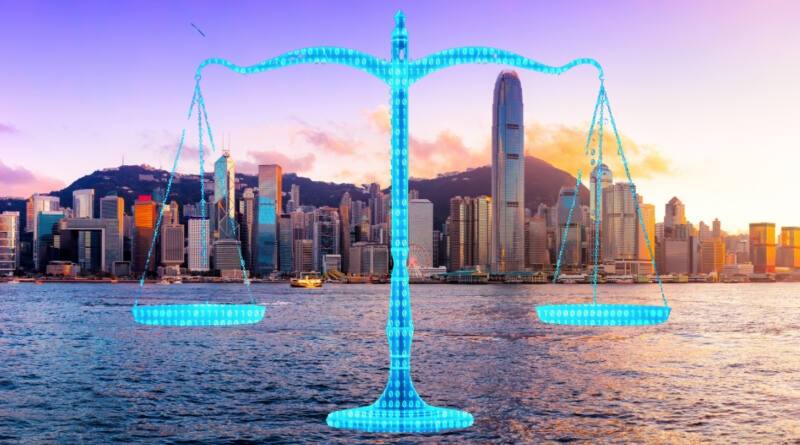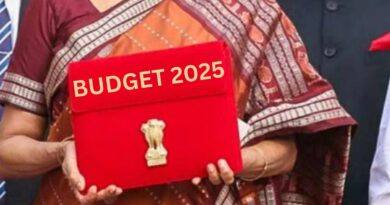Hong Kong’s New Security Laws: A Reason To Worry?
It took decades for Hong Kong to pass new security legislation. It is important to understand this.
WFY BUREAU ASIA: A former British colony that enjoyed some independence from Beijing is seeing its freedoms eroded once again with the passage of this law.
The Beijing-controlled Legislative Council in Hong Kong approved a new security law on March 19, 2024, eliminating all remaining elements of basic freedoms in the territory, according to Human Rights Watch. The Safeguarding National Security Ordinance metes out heavy prison terms for civil society activities and nonviolent speech, while also increasing police powers and diminishing due process rights. The law has the power to stifle dissent on a global scale, as its provisions are applicable to both Hong Kong citizens and enterprises worldwide.
A unanimous vote on the ordinance was taken by the legislature in just eleven days. The legislature examined the 212-page bill in 39 hours during the committee stage but suggested no changes. March 23 is the date on which the statute became effective.
The government of China’s Hong Kong colony enacted new national security regulations, granting authorities greater authority to suppress dissent. This comes twenty-one years after widespread protests prompted the government to abandon plans to implement similar measures.
The bill broadens the definition of illegal behaviour and assigns life sentences to political crimes, including treason and revolt. Following months of massive anti-government rallies, the Chinese government imposed a security law on the territory in 2020. Local officials have stated that it will fill in the gaps in the law.
The Security Act is yet another major curtailment of liberties in a country that was formerly a British colony but was renowned for its unfettered political system and reasonable independence from China. It also shows how the political opposition and civil society in Hong Kong have grown weaker in the last four years.
What the law says and how Hong Kong got here are these:
Massive undertakings
After Britain returned Hong Kong to China in 1997, the financial centre’s mini-constitution guaranteed citizens rights not found on the mainland, such as an impartial court and a free press. On the other hand, it mandated the replacement of the colonial laws that the British were in charge of with national security legislation.
Enacted in a portion of the mini-constitution known as Article 23, the laws would have permitted the shutdown of periodicals deemed seditious and warrantless searches of individuals. Following the resignation of some top officials and the hundreds of thousands of people who demonstrated in the streets that summer, the territory’s top leader withdrew the legislation, vowing not to reintroduce it until it garnered more public support.
The backing never came through, and subsequent attempts to limit Hong Kong’s considerable autonomy also met with strong opposition.
Protesters occupied the downtown skyline for months in 2014, chanting for greater popular participation in the election of Hong Kong’s chief executive. Despite not receiving their demands, their actions sparked a more significant uprising five years later.
Proposed legislation that would have authorised extraditions to the Chinese mainland in 2019 sparked widespread objections. They were the most significant threat to the power of the central government in decades, continued for months, and frequently escalated into violence. Beijing’s 2020 national security law enforced the protests, leading to the arrest of numerous opposition MPs and protestors.
Local legislators in Hong Kong hastily enacted the new security legislation in response to pressure from their Beijing supervisors, maintaining the text of the previous version.
Insurgency, treason, sabotage, espionage, foreign meddling, and state secret theft are the crimes it seeks to punish. The administration of Hong Kong has stated that this measure will supplement the 2020 law and safeguard the metropolis from “foreign forces”—a threat that Xi Jinping, China’s formidable leader, has often voiced concerns about.
General and Imprecise Offences
The Ordinance’s extremely broad definitions of numerous crimes raise concerns about the possibility of politically motivated prosecutions and convictions.
It is a crime to acquire, collect, or retain information that is “directly or indirectly useful to an external force” (section 41) and to do so “with intent to endanger national security” (espionage).
“Inciting disaffection of public officers” is a crime that punishes individuals who “knowingly incite a public officer to abandon upholding the Basic Law” or who just possess papers “of such nature” (clauses 19–21).
Information pertaining to “important policy decision[s],” “economic or social development[s],” “technological development[s] or scientific technology,” and “diplomatic or foreign affairs[s]” are all considered “state secrets” according to the Ordinance (section 28). Beijing chooses the chief executive to administer Hong Kong, and it is up to him to decide what information is considered a state secret.
The Ordinance also makes it a crime to act with “seditious intention,” which includes the following: intending to “cause hatred or enmity amongst different classes of residents” in Hong Kong and China; intending to “bring anyone in Hong Kong “into hatred, contempt, or disaffection” against the Chinese or Hong Kong governments, institutions, or constitutional order; and intending to incite others to disobey the law or government order (clause 22). Since the prosecution is not required to establish a purpose to instigate public disorder or violence (section 24), the standard for conviction is low. Authorities are also authorised to “remove by reasonable force” anyone who obstructs the removal of “seditious” publications and to raid private locations to remove them (section 26).
The Suppression of Nonviolent Collective Action
The rights to peacefully assemble as a community and to engage in political activism are criminalised by the Ordinance. It gives the government the power to outlaw groups whose actions are generally believed to pose a threat to national security (clause 58). Public transport systems, computer networks, and office buildings are all considered part of the public infrastructure, and any action that “damages or weakens” these systems is considered sabotage. A 20-year jail term is possible for merely “being reckless” with regard to national security.
Even in a completely nonviolent demonstration, strategies like blocking down main thoroughfares, which were prevalent in both the 2014 and 2019 protests, would face severe punishments.
In its General Comment on the right to peaceful assembly, the United Nations Human Rights Committee emphasised that “[w]here criminal or administrative sanctions are imposed on organisers of or participants in a peaceful assembly for their unlawful conduct, such sanctions must be proportionate, nondiscriminatory in nature, and must not be based on ambiguous or overbroadly defined offences, or suppress conduct protected under” international law.
“External interference” is also made illegal under the Ordinance, which is described as utilising “improper means” to work with “an external force” in order to “bring about an interference effect” (section 50). A variety of entities, including national governments, political parties, and international organisations, might be considered external factors (clause 6).
Influencing the Chinese and Hong Kong authorities and courts can impact the “formulation or execution” of any policy decisions (Article 51). The Ordinance forbids nonviolent actions that criticise the human rights records of the Chinese or Hong Kong governments at the United Nations or that urge other governments to demand that the Chinese and Hong Kong governments fulfil their international legal responsibilities to safeguard human rights. The maximum sentence for intervention from outside sources is fourteen years in jail.
Worldwide Implementation
Anywhere in the world, individuals or entities formed in Hong Kong are able to breach the Ordinance. Their passports and professional licences can be revoked by the government (clauses 90, 93). A maximum of seven years in jail is possible for anyone who provides financial support to the runaway criminals, either “directly” or “indirectly” (clause 87).
There is a significant Indian diaspora population in the region. The impact on them in the future remains uncertain. We hope the international community is closely watching and might intervene in at least human rights violations incidents.




